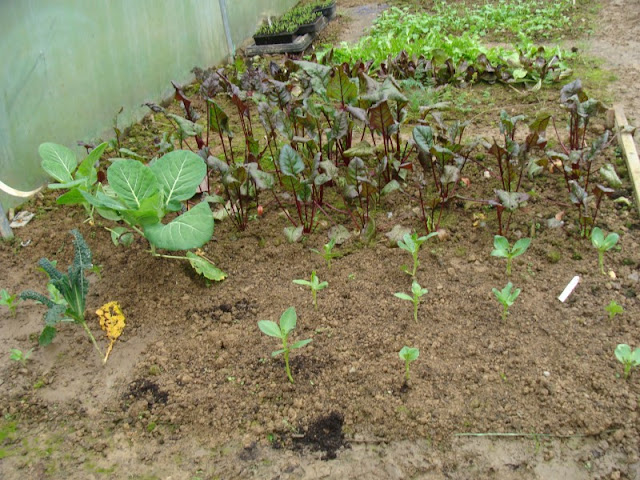 |
| Sprouting a few seed potatoes on the window-sill |
We need to talk about our food.
First off let's remember where it all comes from. Farmers. Every edible item in the supermarket, every sweet snack in the newsagent, every guilty pleasure in the fast-food outlet, regardless of how ultra-processed it may be originates in a farm, or more likely a number of farms scattered across the globe. Farmers keep all of us alive.
It's sometimes difficult to imagine these places because we are so rarely exposed to what an industrial-scale "factory farm" looks like. They vary of course dependent on what the produce is, but most arable farms will be vast fields of a single crop tended by tractors and sprays. Then there are the meat and milk farms, producing the flesh and secretions of animals which are increasingly being kept inside huge warehouses for their entire lives, and fish which are either farmed in underwater cages or trawled from the open seas often using massive indiscriminate nets.
 |
| A vegan chocolate truffle cake made at one of Edible Mach's recent workshops. |
How are these farms managed? Why should we care? Because agriculture is creating such havoc to our living planet. Habitat destruction and pollution and chemicals causing sharp biodiversity decline. Degradation and loss of soil which has taken thousands of years to accumulate. Over-watering leading to aquifers and rivers drying up. Greenhouse gases from livestock driving climate chaos. It is our food, as much as anything, which is tearing our planet's ecosystems apart.
Secondly, what is our food doing to us? In the UK over 50% of family food purchases is “ultra-processed” (the study is based on data from 2008, but is unlikely to have improved since then). And a recent French study links ultra-processed foods to cancer. Diabetes is rocketing. The NHS is spending ludicrous amounts on dealing with the fall-out of the crap our British food system is churning out for us.
There are alternatives, and they are not necessarily expensive. They take a little knowledge and a little willpower to change our routines. As we're in the season of Lent, perhaps it's a good time to take stock of our eating habits. Here's a few ideas to try.
1. Choose organic produce where possible, or produce from local farms and growers. Join a vegbox scheme.
2. Cook from scratch rather than getting takeaways or ready meals. If you don't have much time, make a big turreen of stew and freeze portions of it.
3. Eat less (or no) meat. Once or twice a week makes it a treat.
4. Eat more grains and pulses. Buy them in bulk to keep costs down (eg from Real Foods)
5. Teach children how to cook from fresh ingredients, at school and in our own kitchens.
6. Eat with others if you can. Invite neighbours and friends over but not for an elaborate dinner party, just make it a simple and enjoyable meal. It might happen more often that way.
Any other suggestions?
 |
| Weddings demand a tie. But which one? |







